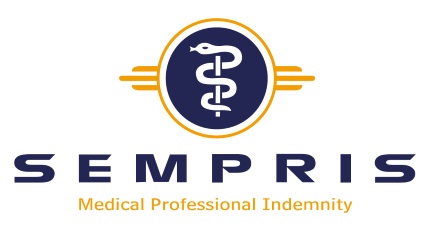The Media and now Social Media is part of everyday life, and it’s here to stay. Ensuring that you communicate in the right way with the media and across social media channels can be vitally important for you, your patients and your practice.
Media contact
A media approach may be friendly, for example, a journalist might want a comment on a feature article they are putting together. However, if something has gone wrong the approach may be more intrusive and contact can come in different forms when you least expect it, by:
- phone or email
- posting a comment or question on social media channels
- visiting your place of work or even your home
- making contact via your colleagues, friends and family
In an ideal world you will have recognised that an event will attract the attention of the media and you’ll prepare to be contacted before it happens. If not, you may be caught off guard, although written contact will give you more time to think about how you should respond.
Don’t do anything rash!
If you are approached, avoid responding straight away. Take time to consider questions or comments. If you receive a phone call, listen to the request and say that you will phone or email them back. Even if you feel well equipped to deal with the query yourself, it’s still a good idea to take time to think how to respond and possibly seek advice.
Taking advice is particularly important if the media enquiry is related to an ongoing investigation where any comment may prejudice procedures or patient confidentiality.
Avoid saying ‘no comment’ as this can be interpreted as being defensive!
The next step!
If you decide to handle the query yourself and have gathered all the necessary information and advice, use plain easy to understand words that cannot be misunderstood or taken out of context. Assume that anything you say could be published in the public domain, and nothing is ‘off the record.’
Protecting your patients’ privacy
Taking photographs or video in now common place as is sharing material far and wide across social media channels. If you have a high profile patient and photographers or camera crews appear outside your practice, hospital or clinic, alert staff members to ensure that your patients’ privacy and identity is respected.
Undercover reporting
If you are unfortunate enough to be the target of an undercover investigation with a journalist posing as a patient, your response to the media should be handled in the same way as would a query from a genuine patient during consultation. If you think a situation does not quite right from the start, end it politely and seek advice immediately.
When things go wrong
Despite best efforts, things do go wrong and factually incorrect articles and misquotes may appear in the media.
If your comments are taken out of context or edited so that they no longer represent what you said then you can either seek an apology and/or a correction, or even report the publisher to the PCC (Press Complaints Commission).
If an article that you contributed to is factually incorrect then seek advice on the best way of handling this. According to the PCC significant inaccuracy must be corrected promptly with due prominence and, where appropriate, an apology issued.
Defamation occurs when a false statement is made by one person about another in an attempt to discredit that person’s character and reputation. Defamation can be written or spoken. If this happens to you then you can start defamation proceedings if your professional practice and reputation are likely to suffer serious harm. However, proceedings of this type can often be lengthy and expensive and whether or not to go ahead needs to be carefully considered.
We hear a lot about injunctions these days but receiving prior notice and taking an injunction out before a story hits the press is rare. It is essential to seek advice on this issue as soon as possible.
Managing social media
The advent of Social Media – including Twitter and Facebook – has changed the media world dramatically and caused reaction times to news, good or bad, to be almost instantaneous. The same standard of professionalism and confidentiality medical personnel need to adhere to still apply, however, no matter what the method of communication.
Any information posted on social media channels, even to a closed group, can still make its way into the public domain. Posting inappropriate comments, photos or describing a patient’s’ care can seriously damage reputations and can lead to disciplinary action in the more extreme cases. It’s a good rule of thumb to never reply to posts from patients or colleagues – seek advice immediately as to the best way to deal with patient feedback if you feel it is negative and/or damaging.
Useful links:
The Press Complaints Commission
More GuidelinesShare this post:
- - -
